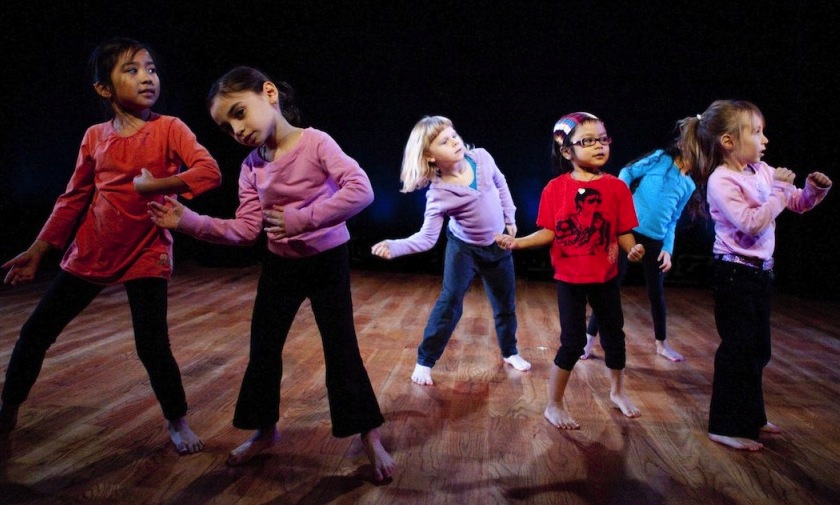Creative Ways to Keep Children Active Through Movement
Keeping children physically active is essential for their overall health, development, and happiness. Movement not only strengthens their muscles and bones but also improves coordination, balance, and mental well-being. In today’s screen-heavy world, finding engaging ways to motivate children to move can be a challenge. Parents and educators need creative strategies that make exercise fun and enjoyable, turning physical activity into a positive habit rather than a chore.
Introducing children to structured activities, such as dance classes for kids Sydney, is one way to combine movement with creativity and social interaction. Dance not only keeps children active but also helps develop rhythm, coordination, and confidence. Programs led by experienced instructors offer age-appropriate routines that make exercise exciting while encouraging self-expression and teamwork.
Dance and Rhythm-Based Activities
Dance is a natural and fun way for children to get moving. Even simple activities like clapping to the beat, jumping, or spinning can enhance coordination and balance. Parents can create mini dance sessions at home using favorite songs or rhymes, making movement an enjoyable part of daily routines.
Age-appropriate routines, whether through formal dance classes or casual home activities, help children develop physical strength and rhythm. Rhythm games and musical activities also boost cognitive skills by combining auditory and motor coordination. Over time, children gain greater body awareness and self-confidence, which can positively influence other physical activities.
Outdoor Play and Adventure
Outdoor play is a fantastic way to keep children active while connecting with nature. Parks, playgrounds, and open spaces provide opportunities for running, climbing, jumping, and exploring. Activities like cycling, hopscotch, and obstacle courses encourage endurance, strength, and agility.
Being outdoors stimulates curiosity and creativity, as children invent games and explore new challenges. Even simple activities like treasure hunts or scavenger hunts can turn a casual walk into a fun, engaging exercise session. Encouraging outdoor play fosters independence, resilience, and an appreciation for physical activity from an early age.
Interactive Games and Sports
Structured games and sports are another effective way to keep children active. Team-based activities like soccer, basketball, or relay races teach cooperation, strategy, and sportsmanship while providing a full-body workout. Even casual playground games like tag, hide-and-seek, or dodgeball offer excellent cardiovascular and muscular benefits.
For added variety, parents and educators can introduce creative rule variations or themed games to maintain interest. Incorporating movement into everyday play, such as balancing on a line or hopping through a pattern of shapes, encourages active learning. Programs like dance classes for kids Sydney often integrate interactive games and rhythmic exercises to combine fun, movement, and skill development seamlessly.
Creative Movement at Home
Keeping children active doesn’t require a gym or playground. Simple indoor exercises can be both safe and entertaining. Setting up a mini activity zone with cushions, hula hoops, or tape markers for movement games can create a playful environment that encourages exercise.
Household items, such as chairs for mini obstacle courses or scarves for dance routines, can be repurposed to stimulate imagination and physical activity. Short, frequent activity breaks between study sessions or screen time can help children release energy, improve focus, and maintain healthy habits. Creative home-based routines ensure that children remain active regardless of weather or schedule constraints.
Movement Through Arts and Theater
Combining movement with storytelling, acting, or imaginative play enhances creativity and body awareness. Children can act out stories, mimic animals, or perform short skits that require movement and coordination. These activities encourage expression, confidence, and motor skill development.
Integrating arts and theater-based movement into daily routines or extracurricular programs, including dance classes for kids Sydney, provides children with multiple avenues for physical activity. Movement-based play also helps children develop social skills, as many activities involve teamwork, listening, and communication with peers.
Incorporating Technology Wisely
While excessive screen time can hinder physical activity, certain interactive technologies can encourage movement. Active video games, dance tutorials, and motion-based apps can promote exercise in a controlled, enjoyable way. Selecting age-appropriate programs ensures that technology supplements rather than replaces physical activity.
When balanced with outdoor play and hands-on activities, these digital tools can provide variety and motivate children to participate in structured movement routines. Using technology creatively helps children explore different movement patterns and keeps them engaged in exercise.
Encouraging Consistency and Fun
The key to keeping children active is making movement a regular, enjoyable part of daily life. Routines should be flexible and adapted to children’s interests, ensuring they perceive physical activity as fun rather than a task. Positive reinforcement, celebration of small achievements, and shared activities with family or friends enhance motivation and adherence.
Variety is also important. Alternating between dance, outdoor play, interactive games, and imaginative movement prevents boredom and keeps children excited about being active. Consistency, combined with enjoyment, lays the foundation for lifelong healthy habits.
Conclusion
Keeping children active through creative movement supports their physical, mental, and social development. Dance, outdoor play, structured games, home-based activities, arts, and selective use of technology provide diverse ways to encourage exercise. By making movement enjoyable and consistent, parents and educators can instill habits that promote health, confidence, and engagement. Programs like dance classes for kids Sydney can provide structured support, combining fun, skill-building, and social interaction to ensure children remain active, healthy, and happy.










